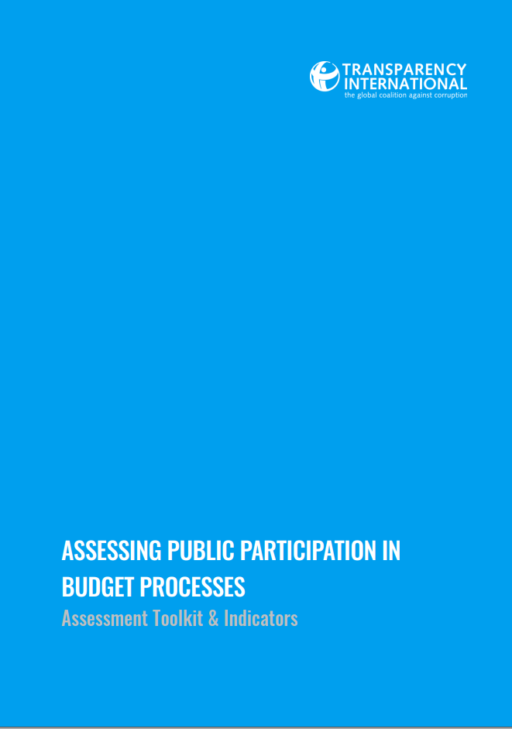Assessing Public Participation in Budget Processes: Assessment Toolkit & Indicators
Description
The Assessment Tool on Public Participation in Budget Processes assesses the extent to which a public institution provides, or is ready to provide, opportunities for meaningful public participation in budget processes. The Assessment Tool is designed as a questionnaire comprising 46 different indicators, arranged around eight key pillars. These pillars are divided across two parts—Part A which assesses the readiness of an institution to facilitate a participatory process or mechanism, and Part B which assesses the nature, depth, and quality of the participatory process or mechanism in practice.
As such, participation readiness considers budget transparency, political will, legal mandates & operational frameworks and civic space. Participation in practice is assessed in terms of the participatory process, outreach & awareness, inclusion & access and accountability.
A public institution may be assessed under each part independently to yield separate scores for ‘participation readiness’ and ‘participation’ in practice which, taken together, provide a holistic measure of the ‘state of participation’ at the assessed public institution.
The Assessment Tool is premised on the rationale that an understanding of the operating context, along with a thorough diagnosis of gaps in existing participatory processes or mechanisms, can contribute to strengthening meaningful public participation in budget processes. The tool has thus been primarily developed for Transparency International chapters to assess the state of public participation in budget processes, and then use the assessment findings to advocate for or help improve such participation at public institutions in their own national or local contexts. This does not, however, preclude other civil society organisations (CSOs) or independent researchers working in budget advocacy from using this Assessment Tool in similar fashion as well.
Authors
Anoukh de Soysa
Reviewer
Matthew Jenkins
Instructions
Should you be interested in learning more about this tool, or possibly adapting and applying it yourself, please contact Anoukh de Soysa at [email protected] for support.
This Toolkit is also available in French and Spanish.
Date
23/12/2022
Tags
 Download PDF
Download PDF
